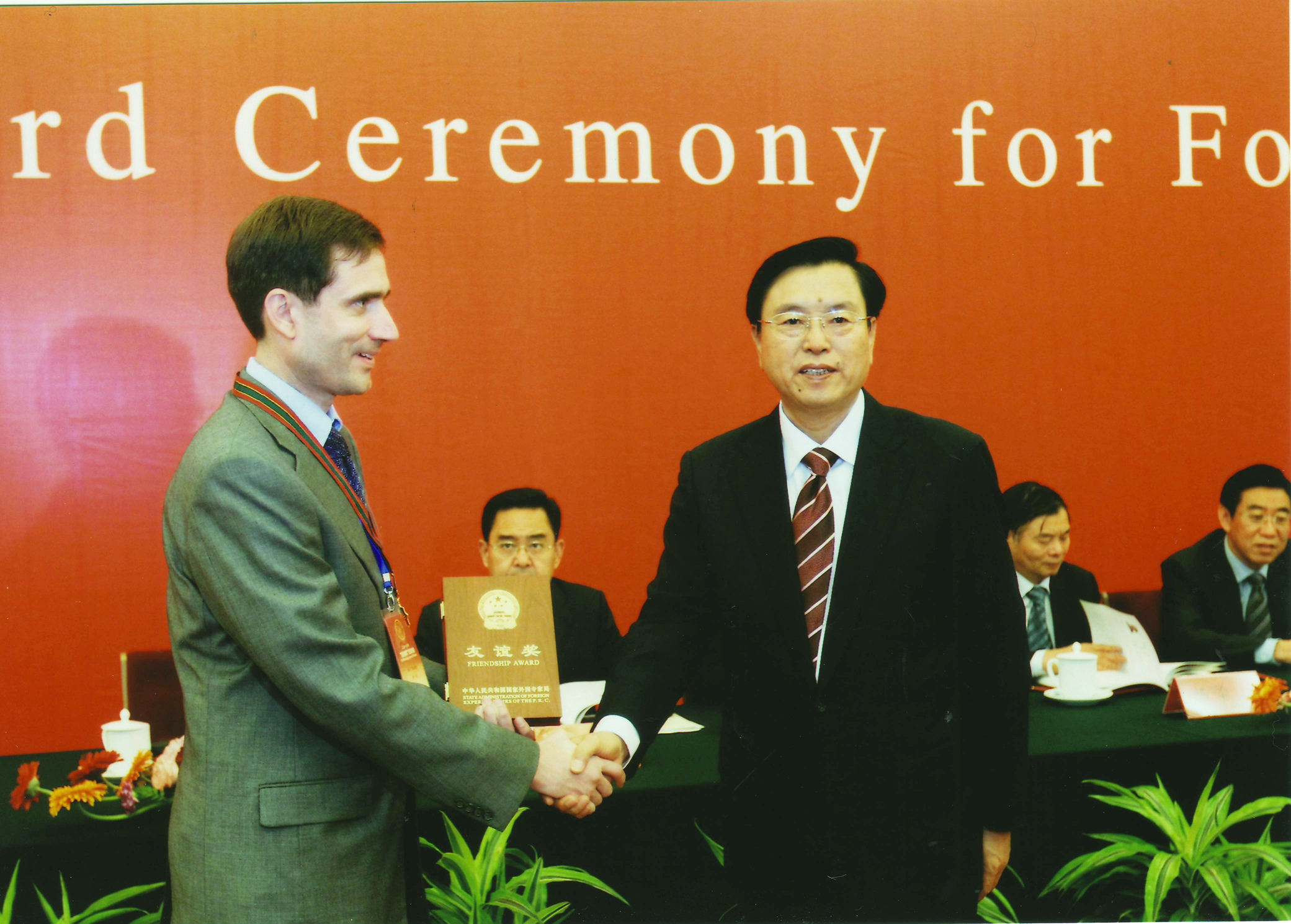Virginia Tech's Rolf Mueller receives friendship award from China

Virginia Tech Associate Professor of Mechanical Engineering Rolf Mueller received a friendship award from the Chinese government for his outstanding contributions in economics and social progress.
Zhang Dejiang, vice-premier of China, made the presentation to Mueller during a ceremony in the Great Hall of the People in Beijing. Mueller was also the invited guest at a reception and state banquet of China’s Premier Wen Jiabao to celebrate the National Day of the People’s Republic of China.
Mueller was cited for his involvement in the opening of a new international laboratory based at Shandong University in eastern China. Mueller held a professorship at Shandong University before he joined the Virginia Tech faculty in 2008.
The new laboratory focuses on bio-inspired research. During the past summer, the lab was used by an interdisciplinary group of researchers from the University of Utah, North Carolina State University, and University of California Los Angeles to conduct experiments on the extraordinary capabilities of bats to generate high-powered ultrasonic pulses.
Mueller’s aspiration in teaching is to bridge the gap between disciplines, especially between biology and engineering, he says.
Mueller’s research is focused on the understanding of how the most capable biological sensory systems can achieve their best performances. His recent achievements include: providing the first physical explanation for the role of a prominent flap seen in mammalian ears in 2004; discovery of a novel helical scan in the ear directivity of a bat in 2006; discovery of frequency-selective beam-forming by virtue of resonances in noseleaf furrows of a bat, an entirely new bioacoustic paradigm in 2006; establishing the first immediate and quantitative characterization of the spatial information created by a mammal’s outer ear in 2007; and uncovering the acoustic effect of non-rigid ear deformations in bats in 2010.
Also, he received a Top Ten Scholars Award from Shandong University in 2006, Tuebingen University’s 1999 Dissertation Award, and held a NATO Post-Doctoral Fellowship from 1998 until 2000. His work has been featured by international media such as Nature, Physics Today, Financial Times, Popular Science, and the BBC.
He has a patent allowed for issuance on a method for frequency-driven generation of a multi-resolution decomposition of the input to wave-based sensing arrays.
Mueller received all three of his degrees from the University of Tuebingen. He earned his bachelor’s in biology in 1992; his master’s in neuroscience, genetics, and electronics in 1995; and his doctorate summa cum laude in animal physiology in 1998. Afterwards, he was a post-doctoral Fellow at Yale University’s Department of Electrical Engineering until 2000. He became a visiting researcher at the University of Edinburgh’s Division of Informatics for a brief period until he started the Biosonar Laboratory at Germany’s University of Tuebingen’s Department of Animal Physiology where he spent three years.
Mueller became an assistant professor at The Maersk Institute at the University of Southern Denmark from 2003 until 2005. He received full professor status with his move to the School of Physics at Shandong University, China. While he held this position, he was also appointed as visiting research professor at Brooklyn College of the City University of New York. He has held this dual position until his appointment with Virginia Tech in September 2008.



